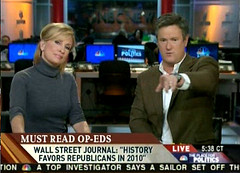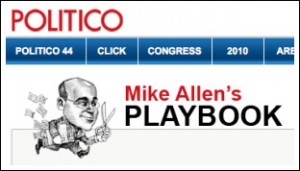This commentary was published earlier at the Nieman Journalism Lab.
What should a 21st-century news organization look like? A single entity, run from the top, with a common set of values? Or a loose network of related projects, sharing a brand and to some extent a mission but operating semi-independently?
With the likely departure of Ezra Klein from The Washington Post, the management of one of our last great newspapers might be showing signs of preferring the former approach. Klein, who founded and runs the widely read Wonkblog at washingtonpost.com, is reportedly leaving for a new venture, as yet undefined. According to Ravi Somaiya in The New York Times, Klein sought an eight-figure Post investment in the new project. Klein already has his own Wonkblog staff, but clearly he has something much bigger in mind — perhaps an all-purpose independent news organization along the lines of Talking Points Memo. (Although it wouldn’t be called Wonkblog — the Post owns the name and will be keeping it, writes The Huffington Post’s Michael Calderone, who broke the news about Klein’s proposal last month.)
We can’t know everything that went into the decision. Maybe it came down to money. But Wonkblog generates a hefty amount of Web traffic — more than 4 million page views a month, according to a profile of Klein in The New Republic last February. “It’s ‘fuck you traffic,’” a Post source told TNR’s Julia Ioffe. “He’s always had enough traffic to end any argument with the senior editors.” Apparently, that’s no longer the case.
Significantly, the Times reports that new Post owner Jeff Bezos was involved in the decision to let Klein leave. Last September, shortly after announcing his intention to buy the Post for $250 million, the Amazon.com founder lauded the “daily ritual” of reading the morning paper — which led to some chiding by one of the Post’s own journalists, Timothy B. Lee. Despite Bezos’ well-earned reputation as a clear-eyed digital visionary, he appears to have some romantic notions about the business he’s bought into. And allowing entrepreneurs such as the twentysomething Klein run his own shop inside the Post might not fit with that vision.
What makes the likely Klein departure even more significant is that in 2006 the Post, under the ownership of the Graham family, allowed John Harris and Jim VandeHei to walk out the door and start Politico. Now, I have a lot of problems with Politico’s gossipy “drive the day” approach. But as Times columnist Ross Douthat has observed, much of the media conversation about Washington politics has shifted from the Post to Politico, threatening one of the Post’s franchises. It would have been enormously beneficial to the Post if Politico had been launched under its own umbrella. And Politico itself might be better.
So if the Post is reluctant to loosen the reins, are there any other news organizations that are taking a different approach? Walt Mossberg and Kara Swisher walked away from their AllThingsD site at The Wall Street Journal and set up a new project called Re/code in partnership with NBC. Perhaps the most famous example is Nate Silver, who brought his FiveThirtyEight poll-analysis site to The New York Times a few years ago and then moved it lock, stock and barrel to ESPN. In that regard, I suppose you could say NBC and ESPN have embraced the network approach. To some extent you might say also that of The Huffington Post, as it combines professional journalists, unpaid bloggers (I’m one) and a dizzying array content — from Calderone’s excellent media coverage to the notorious Sideboob vertical.
Jeff Jarvis recently argued that Patch — AOL’s incredibly shrinking hyperlocal news project — might have stood a chance if AOL chief executive Tim Armstrong had taken a network approach. Rather than running cookie-cutter community sites from the top down, Jarvis asked, what if Patch had offered advertising and support services to a network of independent or semi-independent sites?
The problem with such scenarios is that media executives — and business leaders in general — are not accustomed to the idea of giving up control. Calderone reports that some Post staffers have long grumbled at what they see as “preferential treatment” for Klein, which suggests the depth of the problem. But entrepreneurial journalists like Harris and VandeHei, like Mossberg and Swisher, and like Silver and Klein have a proven track record.
Legacy news organizations need to find a way to tap into that success outside the old models of ownership and not worry about obsolete notions of employer-employee relationships. Reach and influence are what matter. And they are proving to be incompatible with the ambitions of young journalists like Ezra Klein.
More: After this piece was published at Nieman, Mathew Ingram responded at Gigaom with his own smart take.






